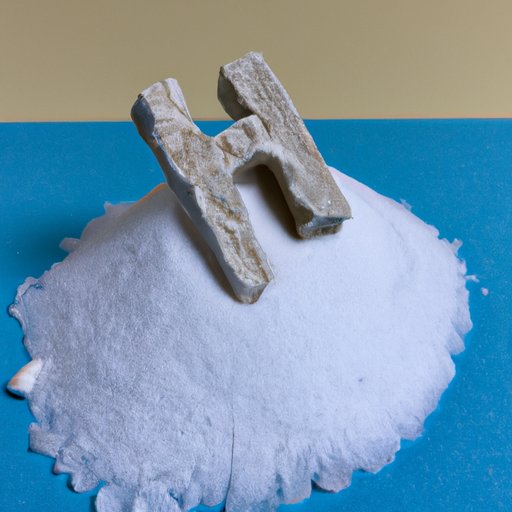Introduction
Tooth enamel is the hardest tissue in the human body, providing a protective barrier to the softer dentine layer beneath. Poor oral hygiene and certain dietary choices can contribute to the erosion of this vital outer layer, leading to increased risk of cavities, gum disease, and other dental problems. Fortunately, research suggests that mineral intake can play an important role in protecting and repairing tooth enamel.

The Link Between Minerals and Improved Tooth Enamel Health
Minerals are naturally occurring elements that are essential for many bodily processes, including the development and maintenance of dental health. According to a recent study published in the International Journal of Dentistry and Oral Health, minerals such as calcium, phosphorus, and magnesium are particularly important for forming and preserving tooth enamel. The study concluded that “these minerals are needed to promote remineralization and reduce demineralization of tooth enamel, thereby protecting against caries.”
Calcium, phosphorus and magnesium are not the only minerals that can help to protect and repair tooth enamel. A study published in the journal Nutrients found that zinc, iron, and copper can also be beneficial for tooth enamel health. Additionally, some vitamins, such as vitamin C and vitamin D, have been linked to improved dental health and may help to strengthen tooth enamel.
A Closer Look at the Science Behind Minerals and Tooth Enamel Repair
In order to understand the relationship between minerals and tooth enamel repair, it’s important to look at the science behind these nutrients. Calcium and phosphorus are the two primary minerals involved in the remineralization process, which helps to restore lost enamel. These minerals work together to form hydroxyapatite, a substance found in tooth enamel that helps to make it hard and durable. Research suggests that calcium and phosphorus supplements can help to strengthen tooth enamel and reduce the risk of cavities.
Magnesium is another important mineral for tooth enamel repair. Studies have shown that magnesium can help to reduce the acidity of saliva, which can help to prevent the erosion of tooth enamel. Additionally, magnesium has been linked to improved enamel hardness and reduced sensitivity. Iron, zinc, and copper may also help to strengthen tooth enamel by providing additional protection against acid erosion.
Vitamins can also play a role in tooth enamel repair and strengthening. Vitamin C is an antioxidant that helps to neutralize free radicals, which can damage tooth enamel. Vitamin D is important for the absorption of calcium and phosphorus, both of which are essential for healthy enamel. Vitamin D deficiency has been linked to increased risk of tooth decay, so it’s important to ensure adequate intake of this nutrient.
Conclusion
Tooth enamel is the hardest tissue in the human body and provides a protective barrier against decay and infection. Poor oral hygiene and certain dietary choices can lead to the erosion of tooth enamel, but research suggests that mineral intake can help to protect and repair this vital layer. Calcium, phosphorus, and magnesium are particularly important for remineralizing tooth enamel, while zinc, iron, and copper may provide additional protection against acid erosion. Vitamins C and D are also important for tooth enamel health, helping to neutralize free radicals and improve calcium absorption, respectively. By ensuring adequate intake of these essential minerals and vitamins, individuals can help to keep their tooth enamel strong and healthy.
(Note: Is this article not meeting your expectations? Do you have knowledge or insights to share? Unlock new opportunities and expand your reach by joining our authors team. Click Registration to join us and share your expertise with our readers.)
